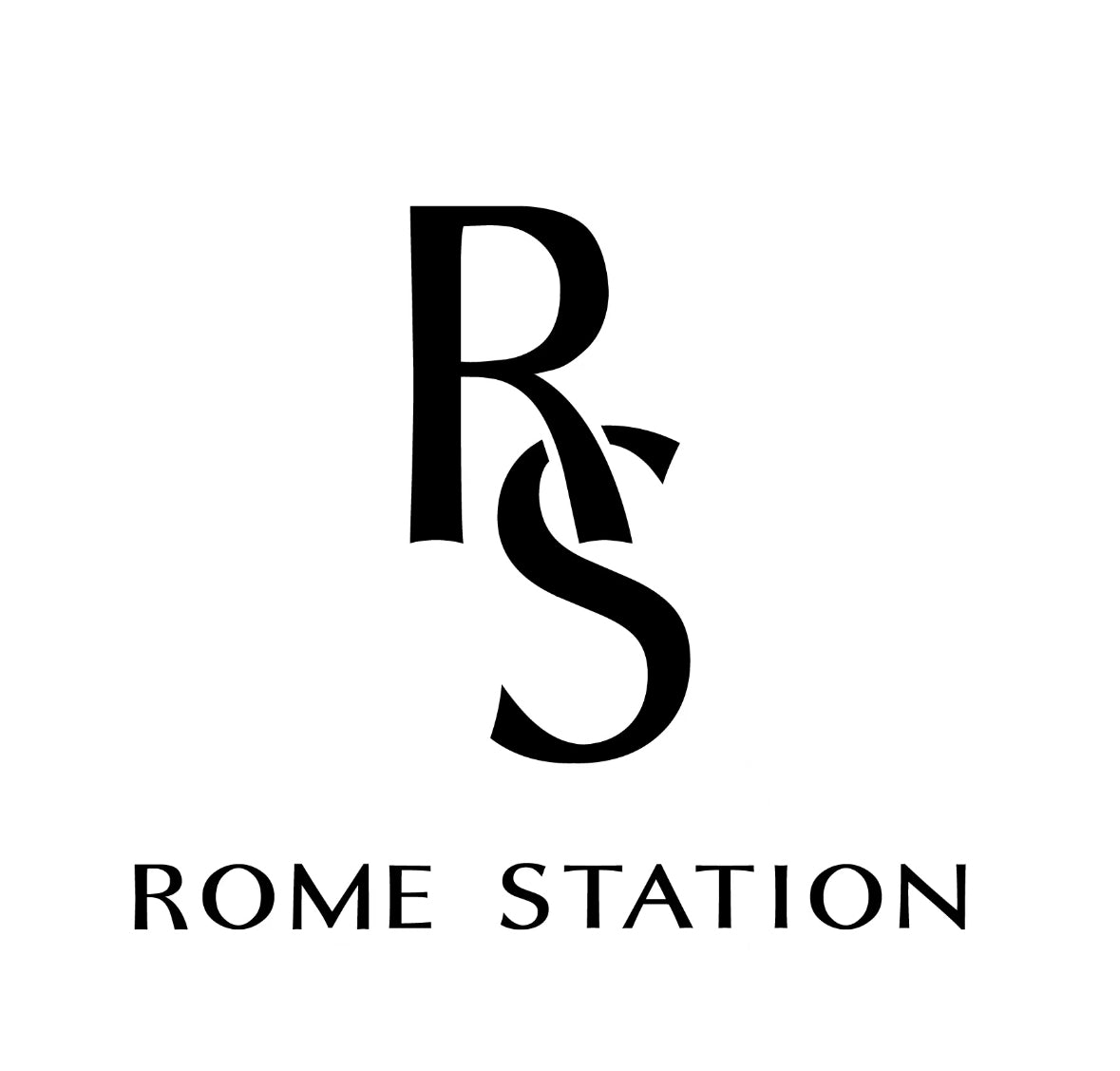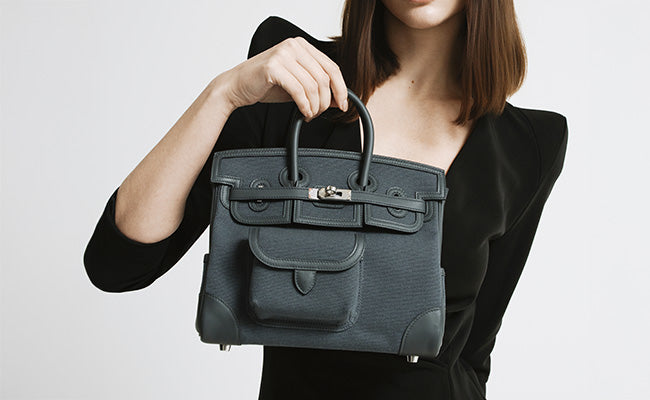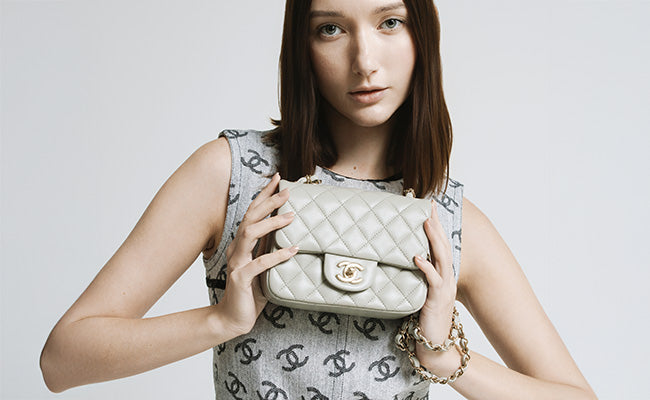
How to Vet a Reseller: Guarantees, Track Record, and Reviews
Check out our Hermès collection and Birkin bags!
Choosing the right reseller for luxury purchases can mean the difference between landing an authentic Hermès Birkin or getting burned by an expensive fake.
Most collectors have heard the horror stories, someone finds a “perfect” deal, only to realize they’ve been scammed out of thousands.
The secret to smart reseller vetting is digging deep into their guarantees, checking their transaction history, and reading real customer feedback before handing over your money.
When you’re spending big on ultra-luxury items, especially Hermès bags or limited-edition accessories, doing your homework isn’t just smart, it’s non-negotiable.
The best resellers put their guarantees in writing, have a documented sales history, and offer customer reviews you can actually verify. The luxury resale market’s exploded, and unfortunately, so have the scams. Some sellers know exactly what you want to hear.
Let’s break down how to size up any reseller’s credibility, from untangling their guarantee wording to picking out red flags in their customer testimonials.
Key Takeaways
- Read guarantee policies and return terms closely, real resellers offer clear authentication promises and fair return windows.
- Check track records using transaction history, client references, and third-party review sites. Don’t just take the seller’s word for it.
- Watch for warning signs: prices that seem too low, vague answers, bad reviews, or sellers who won’t share details on authentication.
Why Properly Vetting a Reseller Is Essential
Choosing the wrong reseller can wreck your reputation and cost a fortune in lost sales or legal headaches. A solid vetting process protects your investment and helps you work only with trustworthy folks.
Protecting Our Brand and Reputation
When we team up with a reseller, they’re representing our brand. Their behavior reflects back on us, whether we’re selling luxury handbags or high-end accessories.
If we don’t vet carefully, a reseller could misrepresent our products or deliver terrible customer service. Even if we had no hand in it, that’s our reputation on the line.
Negative reviews spread like wildfire in the luxury world. One bad experience with a reseller can mean:
- Damaged brand credibility
- Lost trust from clients
- Fewer sales down the line
- Bad word-of-mouth in tight-knit communities
The Hermès crowd is especially connected. Bad news travels fast. We can’t risk our name being dragged through the mud by someone else’s mistakes or questionable authenticity claims.
Avoiding Costly Mistakes
Bad reseller choices don’t just bruise reputations, they can drain your bank account. The financial risks of partnering with sketchy vendors are real.
Some resellers might sell counterfeits, break pricing agreements, or ignore territory contracts, putting us in legal hot water.
Common costly mistakes:
- Legal bills from contract fights
- Lost inventory from unreliable partners
- Chargebacks from unhappy buyers
- Fines for compliance slip-ups
Fixing these mistakes can cost way more than preventing them. Replacing a bad reseller means starting over, finding new partners, rebuilding trust, and maybe losing ground to competitors.
We also risk losing exclusive deals with luxury brands. Companies like Hermès guard their distribution channels fiercely and won’t put up with resellers who drag down their image.
Evaluating Guarantees and Return Policies
A reseller’s guarantee setup shows how much they care about quality and customer happiness. Their return policies tell you how they handle things when a luxury purchase doesn’t go as planned.
Understanding Types of Guarantees
Luxury resellers usually offer three main kinds of guarantees, and each one affects your Hermès investment differently.
Direct guarantees mean the reseller stands by their authentication and quality claims. If there’s a problem, they’ll handle it with you directly, usually making things right quicker.
Manufacturer warranties come into play when you buy newer pieces still covered by Hermès’ original warranty. The reseller basically passes the brand’s coverage along to you.
Third-party authentication guarantees involve outside services checking authenticity. Some higher-end resellers offer lifetime authentication from companies like Entrupy or Real Authentication.
| Guarantee Type | Coverage Period | Claim Process | Best For |
|---|---|---|---|
| Direct reseller | Varies (30 days-lifetime) | Through reseller | Vintage pieces |
| Manufacturer | Original warranty remaining | Through Hermès | Recent purchases |
| Third-party | Often lifetime | Through auth service | High-value items |
Assessing the Clarity and Reliability of Policies
The fine print in guarantee language matters. Vague phrases like “satisfaction guaranteed” with no details should make you pause.
Look for policies that spell out what counts as a valid claim, best resellers define timeframes, condition requirements, and what’s not covered.
Return windows should make sense for luxury goods, usually 7-30 days for authentication issues, sometimes longer for undisclosed problems. Some top resellers even extend returns during the holidays.
Check who pays for return shipping. Premium resellers often cover these costs for legit claims, showing they stand by their selections.
Read refund vs. store credit policies carefully. Full refunds show more confidence in their guarantees than just offering store credit.
Authenticating a Reseller's Track Record
To really know if a reseller’s legit, you need proof and outside validation. Dig into their documented successes and see where they stand in the industry.
Requesting Case Studies and Success Stories
When we’re dropping serious cash on luxury items, we want proof the reseller can deliver. Ask for specific case studies showing real client results, not just fluffy testimonials.
What to look for:
- Transaction timelines
- Detailed authentication steps
- Client satisfaction stats
- Photos of actual items
Good resellers share real examples of rare finds, successful authentications, and happy collectors. They’ll explain how they source pieces and might even show before-and-after photos if they do restoration.
Watch out for generic stories with no names, dates, or details. Legit resellers often highlight client collections on social media (with permission), proving real relationships.
Checking for Industry Recognition
Industry credentials separate pros from hobbyists. Check for certifications from authentication services, luxury consignment groups, or brand training programs.
Key signs:
- Professional authentication certificates
- Membership in luxury goods associations
- Features in fashion or luxury media
- Partnerships with auction houses
See if they’re recognized by Entrupy or Real Authentication. Many reputable resellers have ties with established retailers or show up at industry events.
Search their business name alongside luxury publications or forums. Respected resellers often contribute to articles or discussions, building trust through knowledge, not just sales pitches.
Analysing Reviews and Social Proof
When you’re sizing up a Hermès reseller, reviews are your window into their reputation. Real customer feedback shows you the patterns in service, authenticity, and trustworthiness that no website copy can fake.
Interpreting Customer Feedback
Customer reviews show what’s really going on behind a reseller’s fancy website. Don’t just glance at star ratings, read the actual stories from fellow Hermès fans.
Signs of quality: Look for reviews mentioning authentication steps, packaging, and communication. Detailed stories mean more than generic “great service” comments.
Notice recurring themes. If several buyers mention slow shipping or poor service, that’s a warning sign.
Recent reviews matter most. Standards change, so focus on feedback from the last 6-12 months for a real sense of what to expect.
Negative reviews can be gold. How did the reseller handle problems? Did they fix things professionally? Sellers who handle complaints well are usually safer bets.
Look for reviews naming specific Hermès pieces, authentication certificates, or return experiences. These details suggest real buyers, not fake testimonials.
Spotting Fake or Manipulated Reviews
The luxury resale world has its share of shady operators who pad their ratings with fake reviews. Time to play detective.
Timing patterns can tip you off. Be wary of lots of 5-star reviews posted in a short burst, especially if they sound alike.
Generic language is another clue. Real reviews mention details, buying experience, shipping, product condition. Fakes tend to be vague and over-the-top.
Reviewer profiles matter. Check if reviewers post about other businesses. Accounts with little activity or only glowing reviews for luxury resellers might be fake.
Platform diversity helps. Legit resellers usually have reviews on Google, Trustpilot, or luxury forums. If all reviews are in one spot, be careful.
Cross-check reviews with the reseller’s inventory and social media. If someone claims they bought a Birkin last week but the seller hasn’t posted one recently, something’s off.
Leveraging Testimonials for Deeper Insight
Testimonials can reveal things about a reseller’s service and authenticity that regular reviews miss. The best ones come from verified customers sharing specific details about authentication and after-sales support.
Identifying Genuine Testimonials
Spotting real testimonials means looking for specifics, not just praise. Look for mentions of exact models, purchase dates, and detailed service experiences.
Photos of the actual bag and documentation are a good sign. Authentic testimonials often mention unique details, authentication markers, packaging quirks, that only real buyers would notice.
Red flags:
- Over-the-top language without details
- Several testimonials with the same writing style
- Reviews posted in batches on the same date
- No way to verify the purchase
Check if testimonials talk about the reseller’s authentication process. Real customers often mention wait times, communication, and return policies.
Try cross-referencing testimonials with social media or other platforms where the same person might have shared their story.
The Value of Personal Endorsements
Personal endorsements from collectors carry real weight in the Hermès world. Give extra credit to testimonials from people who clearly know their luxury bags and market values.
Look for endorsements talking about the reseller’s skill with rare or special pieces. These often show how well they handle high-value transactions and tricky authenticity questions.
Most valuable endorsements mention:
- Successful authentication of questionable items
- Fair pricing compared to the market
- Customer service during tough situations
- Speed and security of shipping
Pay attention to repeat customers, if someone’s bought more than once, that says a lot about trust.
Also, testimonials about problem-solving matter. How a reseller handles issues tells you more than a string of perfect transactions ever could.
Spotting Red Flags and Warning Signs
Catching problematic resellers early can save you stress, money, and the pain of buying a fake. Look out for unrealistic promises and sellers who dodge your questions.
Too-Good-to-Be-True Promises
If a reseller says you’ll get that rare Birkin at 20% below retail, it’s time to get skeptical. Real Hermès resellers know these bags hold value.
Common red flags:
- Guaranteed access to rare colors or sizes
- Prices way below market
- “Exclusive access” to new releases
- Return policies that seem way too generous
Real resellers know the market’s tough. They don’t promise what they can’t deliver, especially with Hermès, where scarcity is the whole point.
If someone’s offering a brand-new Kelly for half price, odds are it’s a scam or a fake. Authentic resellers price according to the real market, not wishful thinking.
Lack of Transparency
Trustworthy resellers lay their cards on the table. They’ll share their authentication process, return policy, and business info without hesitation. If a seller dodges your questions or gives fuzzy answers, walk away.
Warning signs:
- Won’t provide detailed photos
- Vague about authentication
- No clear return/exchange policy
- Hidden contact info or business address
- Not willing to discuss sourcing
Legit resellers are proud of their expertise and credentials. They’ll show you authentication cards, detailed condition reports, and explain their process.
You should expect full transparency about pricing, fees, and any restoration work. If a seller can’t or won’t provide this, they’re not worth your trust or money.
Frequently Asked Questions
Here are answers to the biggest questions about vetting luxury resellers, from authentication red flags to reputation checks. These tips help you navigate the tricky world of pre-owned designer goods.
What are the tell-tale signs to spot a reputable luxury bag reseller?
A reputable reseller keeps detailed records for every bag they sell. They’ll provide clear, high-res photos from every angle, including close-ups of serial numbers, stamps, and hardware.
Trustworthy sellers offer authentication certificates from recognized services like Entrupy or Real Authentication. They show their business registration and have a physical location or at least a verifiable address.
Look for sellers who focus on luxury goods, not general merchandise. Their product knowledge will show in descriptions, mentioning leather types, hardware, year of production, and other specifics.
Professional resellers answer questions about provenance quickly. They’ll explain where they got each piece and provide receipts or consignment docs when possible.
How can I check if a reseller has a legitimate history of authentic transactions?
Start by digging into their transaction history on platforms like eBay or Vestiaire Collective, public feedback is your friend here. Don’t just skim star ratings; look for comments about authentication and whether buyers felt good about delivery.
It helps to search their business name with words like "fake," "replica," or "scam." If you see a bunch of complaints about authenticity, that’s a pretty clear warning sign.
Take a look at their social media, too. Does their inventory look consistent? Do they interact with customers? Many established resellers post behind-the-scenes peeks at how they authenticate and source items.
Check if their claimed years in business match up with their online footprint. When a shiny new website says they’ve been around for decades, that’s a red flag you probably shouldn’t ignore.
What warranties or assurances should I insist on when purchasing high-end fashion items second-hand?
You’ll want a written authenticity guarantee and a full refund policy if the item turns out fake. Most reputable sellers are fine with a 7-14 day return window for you to get things authenticated.
Get a detailed condition report, every scratch, bit of wear, or repair should be on there. That way, you won’t get stuck arguing about undisclosed damage later.
Ask for proof of any professional cleaning or restoration. Good resellers usually keep service records and stick to authorized repair centers if they can.
Always use payment methods that protect you, like PayPal Goods & Services or a credit card. Wire transfers and crypto? Not worth the risk, there’s just no safety net.
Could you guide me through the process of analyzing customer feedback for luxury good resellers?
Start with the latest 50-100 reviews to spot current trends. Notice if people mention things like packaging, shipping speed, or whether the item matched the description.
Detailed reviews that talk about authentication steps or item condition are way more useful than a flood of vague five-star ratings.
Watch for weird review patterns, like a bunch popping up on the same day. Real feedback usually trickles in as people actually receive their stuff.
Click on reviewer profiles if you can. If they look like real customers with purchase histories, that’s reassuring. But if they only ever leave glowing reviews for one seller, maybe don’t take it at face value.
What steps should I take to ensure the investment piece I'm eyeing isn't a well-crafted fake?
Ask for extra photos that show authentication points, date codes, serial numbers, the little details in craftsmanship. Compare these to examples from the brand’s site or trusted authentication guides.
Get measurements and weight. Fakes almost always have slight differences you can catch if you check the specs against the real thing.
Ask about the bag’s history. Who owned it before? Any service records? Genuine vintage pieces often come with interesting backstories.
If you’re spending serious money, consider hiring an independent authentication service. It’s a small price to pay for peace of mind, way better than ending up with an expensive fake.
In the realm of designer accessories, what makes a seller genuinely reputable?
Established sellers keep their inventory moving with pieces from a range of luxury brands. They actually know their stuff, descriptions are spot-on and prices feel fair, not inflated or suspiciously low.
Membership in recognized luxury consignment networks, authentication services, or features in reputable fashion media signals industry credibility. These groups don’t just let anyone in; they expect ethical business and some level of expertise.
If you see a seller featured in luxury magazines or collaborating with high-end boutiques, that’s usually a good sign. Media mentions and retail partnerships don’t just fall into anyone’s lap, they point to industry respect.
The best sellers don’t treat you like just another transaction. They remember your name, maybe even what you like, and sometimes offer you first dibs on special pieces. That kind of service? It’s hard to fake.




